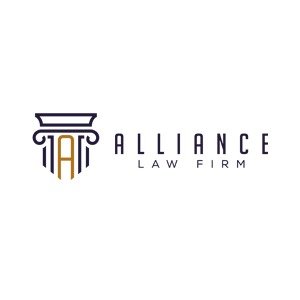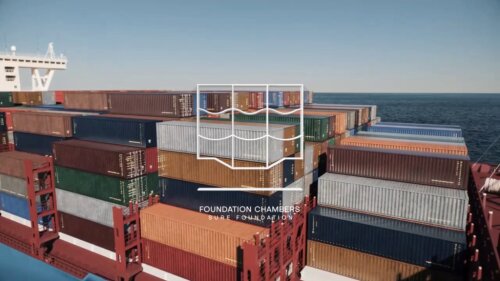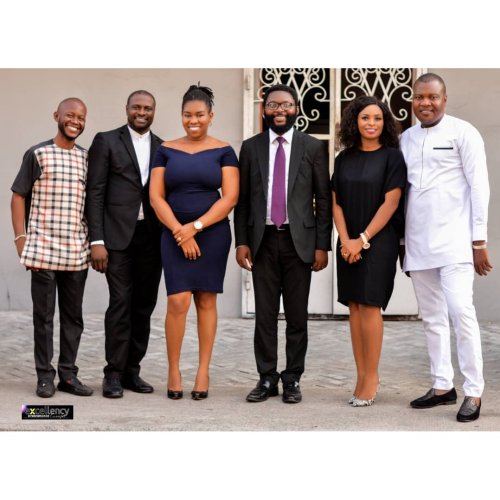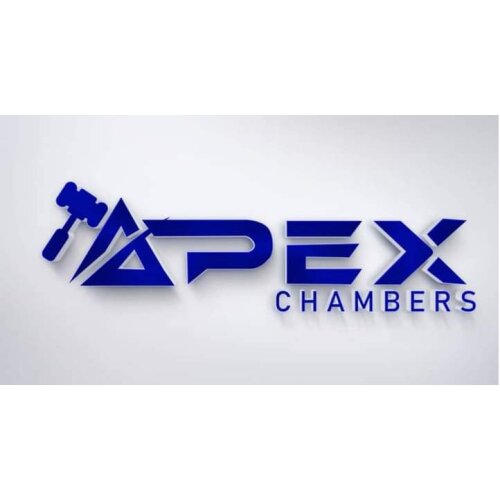Best Government Relations & Lobbying Lawyers in Port Harcourt
Share your needs with us, get contacted by law firms.
Free. Takes 2 min.
List of the best lawyers in Port Harcourt, Nigeria
About Government Relations & Lobbying Law in Port Harcourt, Nigeria
Government Relations and Lobbying in Port Harcourt, Nigeria, encompass the strategic communication efforts and advocacy that individuals, corporations, and organizations undertake to influence government policies and legislation. This field involves understanding the intricate dynamics between regulatory frameworks, political environments, and public policy. In Port Harcourt, a prominent business hub in the Niger Delta region, these activities are critical given the area's rich oil and gas reserves, which frequently necessitate engagement with various government bodies to ensure compliance, facilitate business operations, and promote socio-economic development.
Why You May Need a Lawyer
Legal expertise in Government Relations and Lobbying is crucial for various reasons. Organizations may require assistance when navigating complex bureaucratic processes, engaging in advocacy for policy changes, or ensuring compliance with regulatory requirements. Lawyers in this field can help draft legislative proposals, lobby policymakers, or negotiate with government agencies. Additionally, they can provide litigation support if disputes arise from lobbying activities or compliance issues, ensuring that all engagements with government entities adhere to legal and ethical standards.
Local Laws Overview
Port Harcourt operates under federal and state laws governing lobbying and government relations. Key legal aspects include the regulation of lobbying activities, mandatory disclosures of lobbyists, and compliance with anti-corruption laws such as the Economic and Financial Crimes Commission Act and Public Procurement Act. Organizations must also adhere to Rivers State-specific regulations, especially in sectors like oil and gas, which require approvals from local authorities before initiating any major projects. Awareness of the local political climate and regulatory updates is essential to navigate these laws effectively.
Frequently Asked Questions
What is lobbying?
Lobbying is the act of trying to influence government decision-makers to support specific policies or actions. This is typically done through direct communication with legislators, regulators, or other public officials.
Is lobbying legal in Nigeria?
Yes, lobbying is legal in Nigeria, but it is regulated. Organizations and individuals engaging in lobbying must ensure compliance with relevant laws and maintain transparency in their activities.
What roles do lobbyists play in Port Harcourt?
Lobbyists in Port Harcourt engage with policymakers to advocate for legislative changes, facilitate business-government relations, ensure regulatory compliance, and contribute to policy development, especially in industries like oil and gas.
Does my organization need to register as a lobbying entity?
While there is no central registry for lobbyists in Nigeria, organizations are advised to maintain transparency and accountability by keeping records of their lobbying activities and complying with industry-specific regulations.
How can a lawyer assist in government relations?
A lawyer can provide strategic advice, draft and review policy documents, ensure compliance with laws, help in advocacy strategy development, and represent clients in negotiations or disputes with government entities.
What are the risks of non-compliance in lobbying?
Non-compliance can result in legal penalties, damage to reputation, and an inability to effectively influence policy or regulatory decisions. It may also lead to potential investigations by anti-corruption agencies.
How can transparency be maintained in lobbying activities?
Transparency can be maintained by documenting all interactions with government officials, disclosing lobbying activities when required, and adhering to a code of ethics guiding lobbying practices.
What sectors frequently engage in lobbying in Port Harcourt?
Sectors such as oil and gas, environmental management, infrastructure development, and telecommunications frequently engage in lobbying due to the regulatory complexities and impact of government policies on these industries.
What is the role of anti-corruption laws in lobbying?
Anti-corruption laws are crucial in ensuring that lobbying activities are ethical and legal. These laws aim to prevent bribery, undue influence, and corruption in the lobbying process.
Can foreign entities engage in lobbying in Nigeria?
Yes, foreign entities can engage in lobbying but must comply with Nigerian laws and possibly engage local legal counsel to navigate the specific legal and regulatory landscape.
Additional Resources
Individuals seeking further understanding of Government Relations and Lobbying in Port Harcourt may find the following resources helpful: the Nigerian Bar Association, the Lagos Chamber of Commerce and Industry (LCCI), and the Rivers State Government's official website for updates on local regulations. Additionally, the Economic and Financial Crimes Commission (EFCC) may offer guidance on compliance with anti-corruption laws.
Next Steps
If you require legal assistance in Government Relations & Lobbying, consider reaching out to a reputable law firm in Port Harcourt that specializes in this field. Arrange a consultation to discuss your specific needs and ensure legal compliance in your lobbying activities. Researching and identifying lawyers with experience in local government relations can provide valuable insights and aid in establishing effective advocacy strategies.
Lawzana helps you find the best lawyers and law firms in Port Harcourt through a curated and pre-screened list of qualified legal professionals. Our platform offers rankings and detailed profiles of attorneys and law firms, allowing you to compare based on practice areas, including Government Relations & Lobbying, experience, and client feedback.
Each profile includes a description of the firm's areas of practice, client reviews, team members and partners, year of establishment, spoken languages, office locations, contact information, social media presence, and any published articles or resources. Most firms on our platform speak English and are experienced in both local and international legal matters.
Get a quote from top-rated law firms in Port Harcourt, Nigeria — quickly, securely, and without unnecessary hassle.
Disclaimer:
The information provided on this page is for general informational purposes only and does not constitute legal advice. While we strive to ensure the accuracy and relevance of the content, legal information may change over time, and interpretations of the law can vary. You should always consult with a qualified legal professional for advice specific to your situation.
We disclaim all liability for actions taken or not taken based on the content of this page. If you believe any information is incorrect or outdated, please contact us, and we will review and update it where appropriate.

















